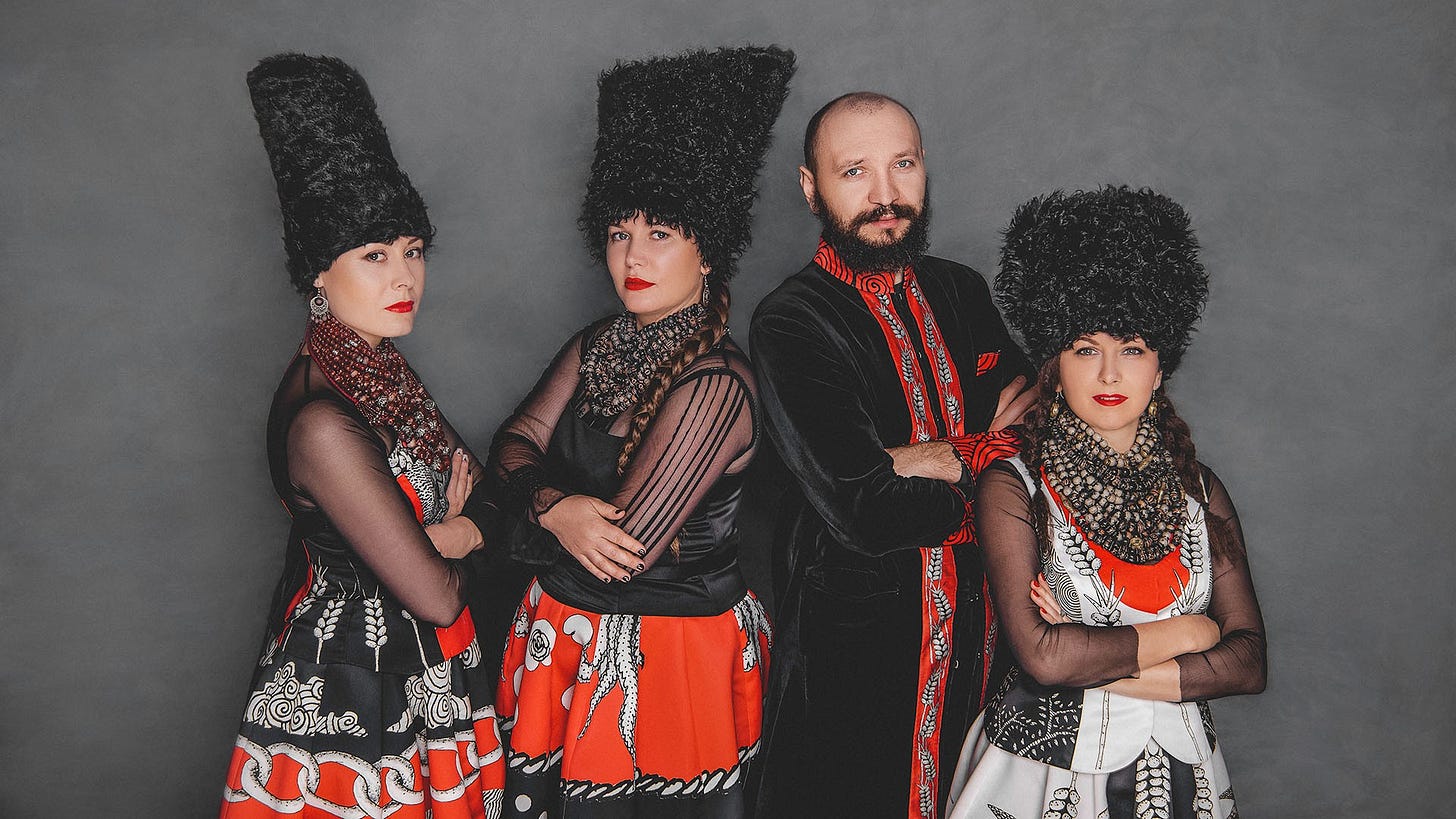If we heard mortar shells,
We’d cuss more in our songs,
And cut down on guitar solos.
[guitar solo]
The Minutemen, Political Song for Michael Jackson to Sing
There are days I feel I’ve been dropped into a hostile wilderness armed with nothing but a buck knife. Those are great days. Other days I feel I’ve been equipped with a banana or a slightly damp toilet paper tube, either of which could probably be fashioned into a boat or small cozy cottage or fully staffed health spa by the likes of Bear Grylls or another representative of the survival-industrial complex, but for me would barely suffice as a meal/telescope (respectively).
The last few weeks my psychological load-out has been far more meager still. My kingdom for a banana. I don’t know why I get this way. When I was a kid I used to buy computer magazines and dutifully copy whatever program the editor deigned to print; A not-very-fun game if I were lucky. More likely, a biorhythm analyzer. If you’re not familiar—and I can almost guarantee you are not—these were a brief craze in certain highly constrained circles in the late 70s and early 80s. A genre of software well-suited to cheap magazines because they were absurdly easy to write, these early digital snake-oil precursors would ask you a bunch of questions like your date of birth and star sign, the answers to which it would coldly discard before drawing a bunch of colored sine waves purporting to supply you with a quantitative display of various aspects of your life extending into the future. I guess the idea was that you could then try to organize important events around those moments in which the sine wave peaks were all aligned. But I think really it was just that sine waves are easy to draw and yet are vaguely “technical” looking and make for a mildly impressive graphics demo.
That said, I do feel the features of my psychological makeup—energy and determination and creativity and so forth—wax and wane cyclically. And though in my mind’s eye I can see that in Plato’s Cave there is a biorhythm analyzer with my name on it, waking life still periodically finds me grasping messily at tropical fruits.
I’ve had a couple pretty good work weeks—circumstances have conspired to grant me complex tasks and large blocks of undisturbed time in which to worry them. The opportunity to hyperfocus is rare for me and it’s been a delight to be able to set my teeth into the flesh of a problem for hours at a stretch. Often I have to talk myself into taking a twenty-minute lunch break. At the end of the day I can look with satisfaction at a difficult problem tumbling feebly in the rear view mirror.
And yet I find myself after work with nothing to talk about.
My work is fairly esoteric, which doesn’t help. And it demands such intense involvement that I find over time my mind tends to become a smooth surface containing a single idea. This is the reason people should read and listen to music and look at art and, well—with apologies for veering into the milieu of self-help books—connecting with people and nature is a good idea as well. There’s nothing wrong with solving highly technical and complex problems; it’s one of my great passions. One just wants to be sure that at the end that one can connect one’s problem solving to the rest of the world.
All this by way of saying my wife and I went to see Dakha Brakha last week and it was a really affecting night—a sublime night. Not entirely a hoe-down; not entirely a dirge. Dakha Brakha, if you don’t know, is a four-piece band hailing from Kiev, Ukraine. Their music mixes traditional Ukrainian folk with rock, pop, hip-hop, and electronica, and various other bits and bobs, but to the western ear the close, strident vocal harmonies and marionette percussion feels distinctly Ukrainian, with the rest of the elements working in support. I say that as one who not long ago would have been hard pressed to say anything about the difference between Ukraine and Russia, as I think was the case with many of us in the West. Dakha Brakha have, therefore, an amazing opportunity to serve as ambassadors for a culture not widely known, and they are doing an amazing job, presenting a Ukraine that draws upon its traditions while stepping boldly into the future—very normal human things which Russia is incapable of doing.
I knew it could be a strange night when, some two or three days after we bought tickets, the president of the United States—who I doubt has ever heard of Dakha Brakha but would probably nod his fat head sagely if you swore to him him they were Putin’s favorites—put on a sickening scene in the Oval Office, ambushing Volodymyr Zelenskyy as though the man had shown up to try to talk Trump into paying a plumber for digging a stubborn plug of Big Mac-scented effluvia out of the toilet trap. I would totally have understood had Dakha Brakha chosen that moment to pack it in and go home—it’s got to be a scary mission for them, to be representatives of a nation at war and to suddenly be confronted with the reality that the leader of the country you’re touring apparently has it in for you. It’s easy to understand how they might not feel safe—because indeed we all know they are not. There have been enough stories of people being illegally spirited out of the country for infractions far less serious than having a connection to the man who failed to be sufficiently obsequious to Donald J. Trump. Three women in towering black fur hats and a bald man with an ocarina positively smacks of NPR-tinged orgies of wokeness, even before you’re told what language you’re listening to.
And yet there they were on stage at the Atlanta City Winery on a Wednesday night, playing music seemingly without a care in the world. It all seemed so hopelessly normal, and yet there were several occasions to remember that there before us was a conduit to a distant battlefield. They’re the first step in the Six Degrees of Bakhmut. They aren’t at the front, but they’ve been touched by the war. I’m sure they know people who have lost friends and family, if they themselves have not. Towards the end of their set they played a video montage of Ukrainian soldiers showing defiance and joy, young faces smeared with dirt but alive with fierce smiles, concluding with an exultation to support the Come Back Alive Foundation. It was moving and hopeful like few views of the war are, and why not? That’s who Dakha Brakha are. They sing folk-rap tales about women trying to find husbands; it wouldn’t be right for them to be morbid or preachy.
I hope this matters. It’s possible to debate the wisdom of feeding weaponry into a distant conflict between two combatants who are not us; it’s harder to imagine telling these four lovely people to get bent; that they don’t deserve a home to go back to after they’re done entertaining Americans. I don’t suppose a lot of MAGA types are falling over each other to score tickets to Dakha Brakha, but it’s still great that they’re here. You never know when someone might accidentally catch a few notes be in turn caught by them. If only to provide an exponent of a culture that has never had a chance to fully emerge in the world, Dakha Brakha is out there doing yeoman’s work, and I think they provide an answer to a question many of us are wrestling with in this moment: what do we do?
We write, we sing, we paint, we dance. We wield that banana with style and charm and verve.






